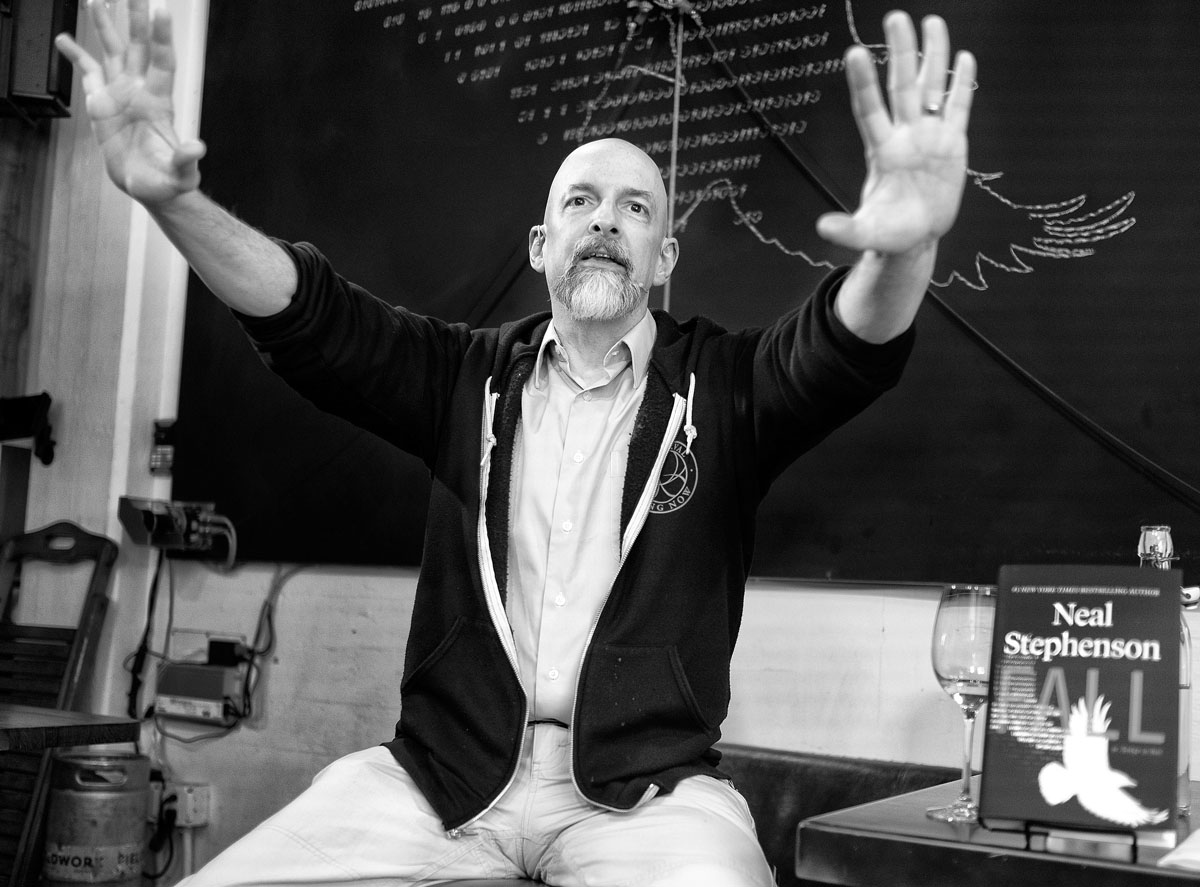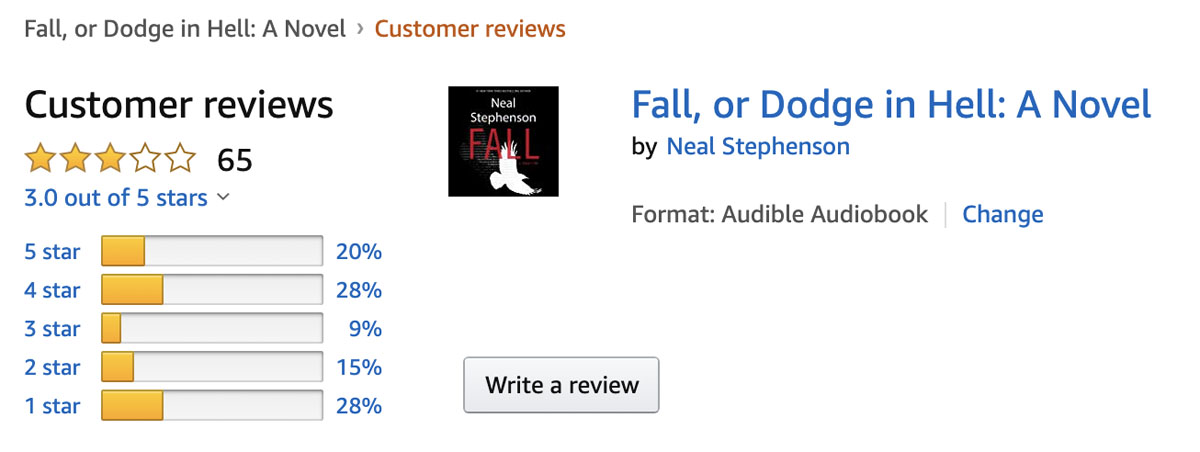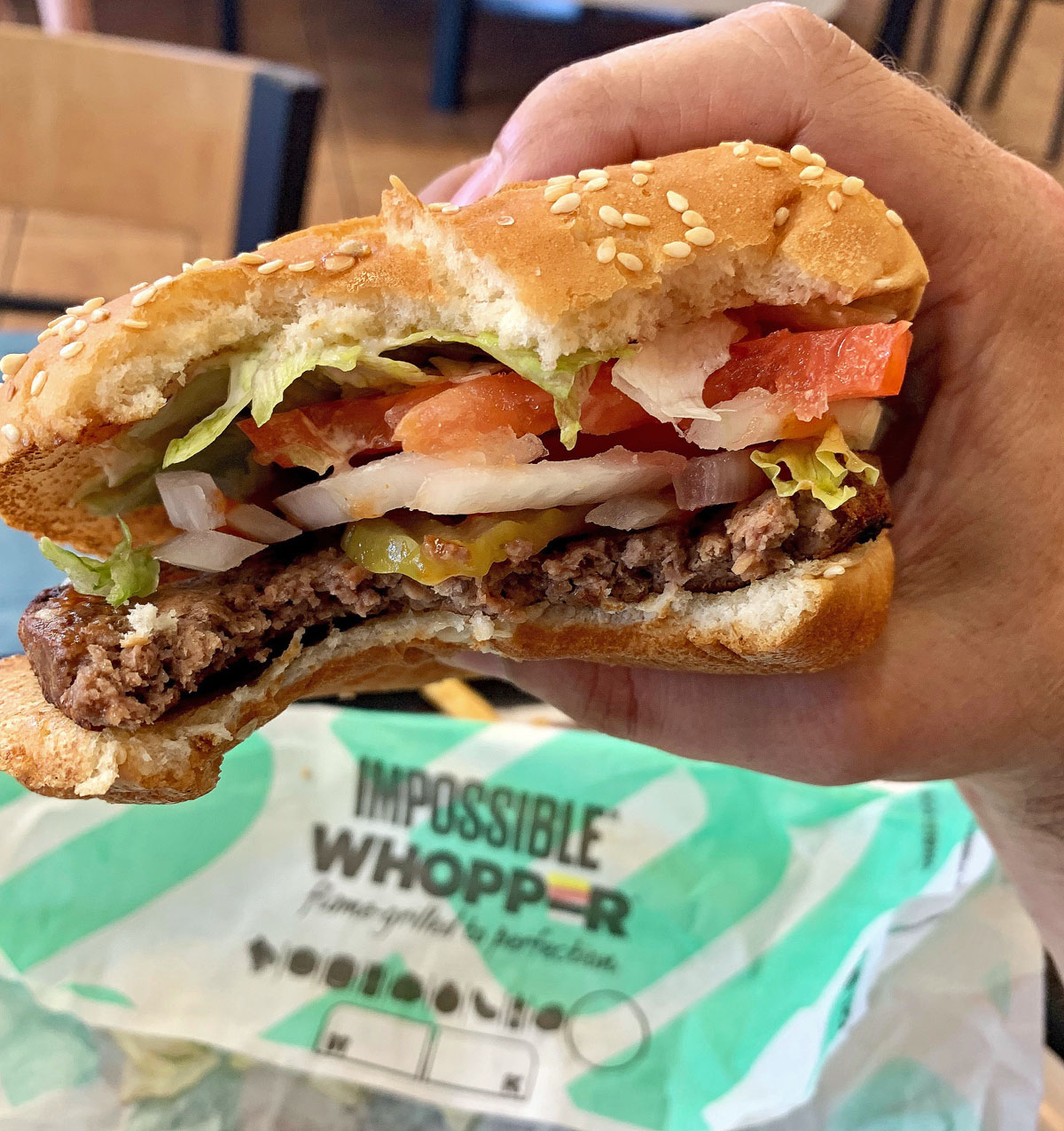
Rob Morse, former metro columnist at the San Francisco Examiner. Photo: Mill Valley Patch, 2011
I am the product of an almost-extinct culture: newspaper culture. I got my first newspaper job at the age of 17, as a part-time copy boy when I was still in high school. I retired as a newspaperman in 2008. Most newspapers are now zombies, but fortunately two have survived and have even kept their souls — the New York Times and the Washington Post.
There are still newspapers in other cities and towns, of course. But their business model is wrecked. Their staffs are tiny. And whatever culture now exists in newspapers other than the New York Times and the Washington Post, it’s not newspaper culture. It’s something else, something more akin to tech culture and web culture, people who use the word “content” and who probably have never even heard the old word, “copy.” The lesser newspapers have little use for old pros and the old culture. Instead they want young staffs with tech skills, tech educations, and with an unquestioned belief that the future is in social media. Blech.
It was globalization, really, that killed newspapers. Wherever globalization happens, something local is lost.
The golden era of newspapers was rooted in two monopolies or near-monopolies that were wiped out by technology.
The first monopoly was that communications bandwidth was very scarce and very expensive. In the days of the telegraph, it was only the newspapers that could support the costs of gathering news and sending it over the wires. When telephones came along, long distance calls were very expensive, but newspapers easily made enough money to bear the cost. Later, Teletype machines, operating over long-distance phone lines (and later, the early satellites), carried the “copy.” In a city of any size, the newspaper had a room full of Teletype machines. (My job as a copy boy included the care and feeding of a room full of Teletypes. What amazing machines they were!) That room full of Teletypes was pretty much the only channel into a city carrying news about events elsewhere in the world. This monopoly slowly evaporated as the Internet was born and millions of miles of fiber-optic cable was laid.
The second newspaper monopoly was local advertising. Stores and businesses bought the “display ads.” But anyone could afford a classified ad. The classified ads were where everyone went when looking for a job, or buying a house or a car. Almost overnight, craigslist killed newspapers’ monopoly on classified ads. Other sorts of advertising moved to the Internet more slowly. But even by the time I retired in 2008, newspapers’ advertising revenue had collapsed.
The cost of subscribing to a newspaper was roughly enough to pay for the paper it was printed on. All the profit was in advertising. Though there was some competition — many cities had more than one newspaper — the pie was plenty big enough to divide two or even three ways.
For a while, it was not clear whether even the New York Times would survive. It did. I was very surprised that the Washington Post has survived, because I thought we had lost it. But the Post has survived. Those are the last real newspapers standing in the U.S., and I believe it was the demand for professionally reported news that saved them.
Unless you’ve seen a budget for big-city newspaper, you might be shocked at how expensive it is to gather and print the news. Once upon a time, even the San Francisco Examiner and the San Francisco Chronicle, where I used to work, had foreign bureaus. Now, as far as I know, only the New York Times and the Washington Post do. I’m going to list those foreign bureaus, for both papers, just to help make the point that a real news operation is very expensive:
New York Times foreign bureaus: Baghdad, Beijing, Beirut, Berlin, Cairo, Caracas, Dakar, Istanbul, Kabul, Jerusalem, Johannesburg, London, Mexico City, Moscow, New Delhi, Ottawa, Paris, Rio de Janeiro, Rome, Shanghai, Sydney, Tehran, Tokyo, Toronto, and Warsaw. The Times also has domestic bureaus in Atlanta, Boston, Chicago, Denver, Houston, Kansas City, Los Angeles, Miami, New Orleans, Phoenix, San Francisco, Seattle, and Washington.
Washington Post foreign bureaus: Berlin, Brussels, Cairo, Dakar, Hong Kong, Islamabad, Istanbul, Jerusalem, London, Mexico City, Miami, Moscow, Nairobi, New Delhi, Paris, Rome, and Tokyo.
Yes, as the Internet grew, a new niche opened up for online publications such as Politico or the now-in-decline Salon. Other online publications are mostly link aggregators that produce little or no “content” on their own, such as Huffington Post on the left and the Drudge Report on the right. But there is no substitute for a real newspaper. That’s why I have paid subscriptions to both the New York Times and the Washington Post. There are many niche sites that are worth looking at, but no one considers them worth paying for. And I think I’ll lay off of Twitter, which I find completely useless, no matter how “well curated” one’s “feed” is. Even if there’s a needle on Twitter, it’s lost in a globalized haystack.
My larger point here is that as globalization and globalized technologies killed newspapers, things that are local were lost. It’s easier now to find out about a fire at Notre Dame than a fire in your own county. Yes, local news weeklies are still around. But they’re lucky if they can afford even one reporter, and most of them fill their columns with stuff they can get for free, such as “neighborhood news” sent in by the elderly, or rubbishy little business features that they get from “partnering” with self-serving entities such as chambers of commerce. There is a frightening scarcity of coverage of local news anymore, particularly local government. Even state government flies under the news radar most of the time in most places. I live in a news desert where local news is concerned, and the odds are that you do, too. When I look at the web site of my last employer, the San Francisco Chronicle (www.sfgate.com), I am disgusted by what I see: fluff, food, technology, and traffic. It’s not a newspaper anymore. Even Politico now covers California politics better than the Chronicle does (not least because an old colleague from the Examiner and Chronicle, Carla Marinucci, now works for Politico).
But as I write this, I’m more in a sentimental mood than a grouchy mood. And that brings me at last to Rob Morse.
It wasn’t just local news that newspapers used to bring us. Most newspapers also had a local columnist. Some newspapers had a very good local columnist. (In larger cities, they were called metro columnists.) Local columnists helped to give a newspaper its personality. When collective grouching needed to be done, the columnist would lead the grouching. When local celebrating needed to be done, they’d lead the celebrating. In times of collective grief and trauma, they would provide collective therapy. I remember morning rush-hour buses in San Francisco creeping down Market Street, and virtually everyone who didn’t have to stand and hold a strap would be holding a Chronicle, reading Herb Caen. When Herb Caen died (in 1997 at age 80), all the church bells of San Francisco rang for his funeral. The Examiner’s metro columnist, Rob Morse, wrote, “We’re on our own now.” Indeed we were, and just look what has happened to San Francisco since 1997. Herb Caen had once written, “One day if I do go to heaven…I’ll look around and say, ‘It ain’t bad, but it ain’t San Francisco.'” These days, I think Caen might prefer heaven.
Caen was a relentless extravert. He was always out and about, relishing the social status that his job gave him. Over at the Examiner, Rob Morse was an introvert. His columns were very much grounded in San Francisco life, but Morse was a ruminant, not a butterfly.
Morse and I were friends. He would often come and sit in my office, where he could escape the din of the newsroom, and talk with a fellow ruminant. Often his thoughts would be about whatever was in his next column. He was a touch awkward and tentative in conversation, frankly. But in writing he never was. Morse was among the very last of the great metro columnists.
I’m not the only person who wondered what happened to Morse after he took a buyout and vanished. In 2011, more than three years after I left San Francisco, the Mill Valley Patch, a little online publication, carried a piece with the title, “Rob Morse, Please Come Home.” I sometimes ask former colleagues if they ever hear from Morse, but no one ever does. He lives a very private life now, I think.
I live a pretty private life, too, and in a much remoter place than Mill Valley, California. Until my trip to the U.K. last year, I had not even done any traveling after I left San Francisco. One of the things I found shocking, whether in airports or on the street, was that these days everyone has their face in a phone almost all the time (and never a newspaper). There must be some kind of local life in those phones, but I don’t think it’s a community life. I don’t think there’s anyone in all those phones who leads the local grouching, or the local celebrating, or who provides group therapy for a group as large as a city. I don’t think there is anyone in those phones for whom all the church bells of San Francisco, or any city, will ring someday.
As Rob Morse said, we’re on our own now. Are our phones really that compelling? Or are they a poor but addictive substitute for something that has gone extinct?
Sometimes I ask myself, as a thought experiment, what I would do if I had a magic button that, if I pushed it, would take us back to the days of Teletypes. I think I would. We’d still know what was happening in Moscow. We’d still know that Notre Dame is on fire. But a now-lost local world might magically reappear.















